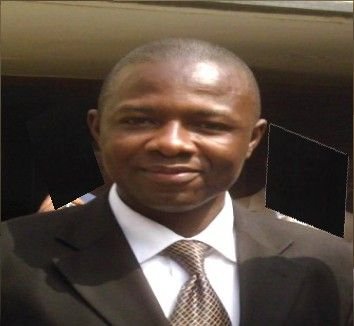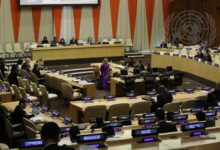The Hotchpotch, The Cooking And The Two Senior Advocates Of A Consent Judgment!
By Fredrick Ikenna Awkadigwe

In a dramatic twist of events, a questionable legal saga has unfolded at the heart of Nnamdi Azikiwe University (NAU) in Awka, Anambra State.
This case, deep in controversy, exemplifies how power, politics, and law can collide to undermine institutional integrity, raising serious ethical and legal concerns. At the center of this storm are two senior advocates, a consent judgment, and the controversial appointment of a new Vice Chancellor of NAU.
The storm began with the process of appointing a new Vice Chancellor, a process that appeared to exclude certain professions from the race. Objections arose from the Senate and the university community, who felt that due process was disregarded in the selection process of the new Vice Chancellor amidst the growing tensions, the Federal Government intervened, dissolving the governing Council of NAU.
However, the more troubling aspect of this entire affair lies in the legal web of orchestrated events that culminated in the obtainment of the incredulous consent judgment from the National Industrial Court. This judgment effectively provided legal cover, apparently unbeknownst to the court at the time, for the individuals involved to carry out their irregular actions.
This consent judgement came through a suit filed by a lecturer at Nnamdi Azikiwe University, who took the issue in suit number NICN/AWK/50/2024 delivered on 16/10/2024 to the National Industrial Court (NICN). Claimant’s complaint was rooted in his belief that the university’s governing council intended to remove the requirement for a Master’s degree and PhD for applicants vying for the Vice-Chancellor role.
He filed the suit against NAU, its Pro-chancellor, the Council, and even the staff of the university, demanding that these degree requirements remain unchanged. Apart from suing the university with all its complement operators, the Claimant also includes all the teaching staff of the university in the action through a representative, as the 6th defendant.
However, there is no evidence that the Council indeed ever planned to remove these said degree qualifications. The case quickly spiraled into a legal circus, culminating in what many now consider an absurd and flawed orchestration.
According to the National Industrial Courts ruling, the Council was restrained from altering the degree requirements for the Vice-Chancellor position. But what should have been a straightforward legal decision turned into a farcical exercise, riddled with irregularities.
First, there was the issue of how Claimant obtained the consent judgment. The university’s governing council had published an advertisement for the Vice-Chancellor position on September 12, 2024. This advertisement, though legal in form, became controversial due to the councils inclusion of a Master’s degree and PhD as mandatory qualifications. Members of the medical and dental faculties, whose career paths do not require these academic credentials, were up in arms.
Despite their complaints, Claimant who had no personal grievance filed a suit, alleging that the Council was planning to change the advertisements content.
In what can only be described as a legal hotchpotch, the consent judgment was arrived at through a twisting plaid on the court. On October 16, 2024, the National Industrial Court of Nigeria issued a judgment that any observer may find curious.
The court approved a consent judgment based on an agreement between Claimant and 6th Defendant acting on behalf of the university staff without the involvement of the full range of defendants, including the medical and dental faculties. There was no proper filing and execution of Terms of Settlement, no hearing notices, and crucially, no valid dispute that invoked the jurisdiction of the court.
Section 20 of the National Industrial Court Act 2006 and Order 42 of the NICN Rules 2017 clearly outline the steps for pursuing a consent judgment. First, the parties involved must show their interest in settling the dispute amicably, and the court may adjourn to allow negotiations.
This did not happen in this case. Once an agreement is reached, the parties or their representatives respectively must sign the Terms of Settlement, and if someone is signing on behalf of a group or organization, they must include the party’s name, their status, and the official stamp or seal to authenticate the agreement.
This was also not done here. After the Terms of Settlement are signed, they must be filed with the court registry, and the court should issue hearing notices to all parties involved. The court should also set a date to adopt the settlement as its judgment. This step was missed too. Finally, any party can ask the court to adopt the settlement earlier than the scheduled date, but this was not done in this case either.
Instead, the court apparently ratified a settlement that was neither negotiated and signed, nor legally binding for all involved parties.
What is even more appalling is the ethical breach that accompanied this case. The senior advocates representing Claimant and 6th defendant, particularly the counsel said to have represented the 6th defendant, found themselves in a conflict of interest, representing two opposing groups the medical and dental staff who had a desire to see the qualifications removed, and the rest of the academic staff who did not share the same grievance.
This represents a fundamental ethical failure in legal practice, as a lawyers is clearly unable to adequately represent the interests of both sides in a matter where the core issue was the very requirement for a Masters degree and PhD.
Furthermore, the fact that the representative for the teaching staff, was not even a medical or dental academic, raises serious concerns about his qualifications to represent those faculty members. The resulting settlement was nothing more than a cooked-up resolution that effectively excluded the crucial stakeholders from the process.
What we have here is a classic case of judicial oversight that has resulted in not only irregular but also unjust binding decision of court.
The consent judgment has resulted in the exclusion of the medical and dental professionals from competing for the Vice-Chancellor position, based on a judgment that they had no part in negotiating. Has this engendered the principles of justice and fairness that the legal system is supposed to uphold? Courts decide live disputes properly placed before it by legal persons with standing, and not academic questions of meddlesome interlopers.
This case underscores the dangers of combining legal processes with institutional politics, especially when senior lawyers fail in their duty of care to their clients. It also raises pertinent questions about the judicial oversight of consent judgments. Were the parties truly in agreement, or was this just a convenient way to sidestep due process? More importantly, what does this say about the state of our judicial system? What should the court do upon the discovery of this magnitude of trickstery plaid on it by way of an unnegotiated Terms of Settlement.
In conclusion, the consent judgment in the case of NICN/AWK/50/2024 serves as a cautionary tale for all involved in the judicial process, from the lawyers to the judges and the academic institutions themselves. It exposes a disturbing pattern of neglect, malpractice, and recklessness, all of which undermine the very foundation of our legal and academic systems. The lack of care and respect for due process in this case must not be allowed to stand as a precedent, and it is imperative that steps be taken to rectify this glaring miscarriage of justice.
Dr. Frederick Ikenna Awkadigwe, LLB, is a lawyer and a medical doctor practicing in the Department of Obstetrics and Gynecology, Enugu State University (ESUT) College Teaching Hospital, Parklane, Enugu, Nigeria.






